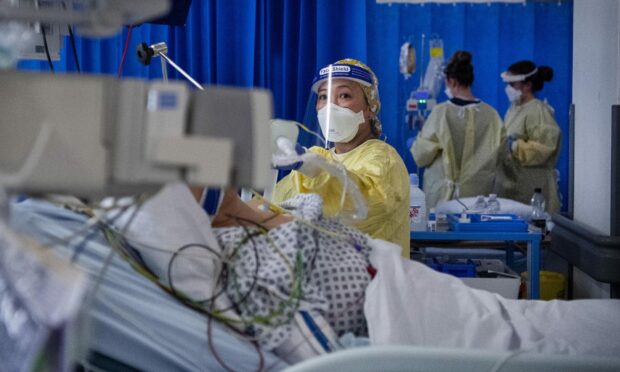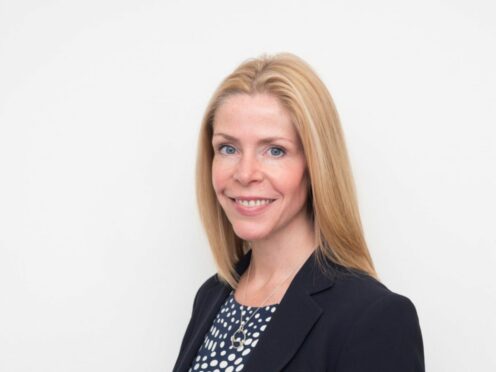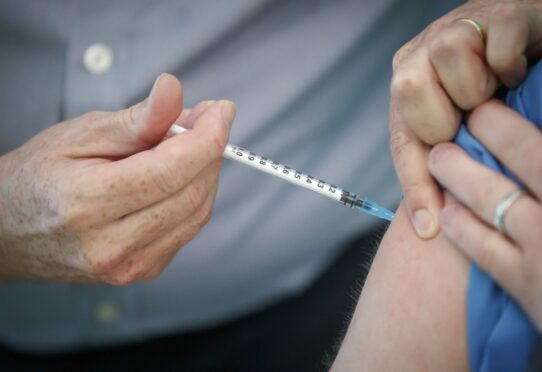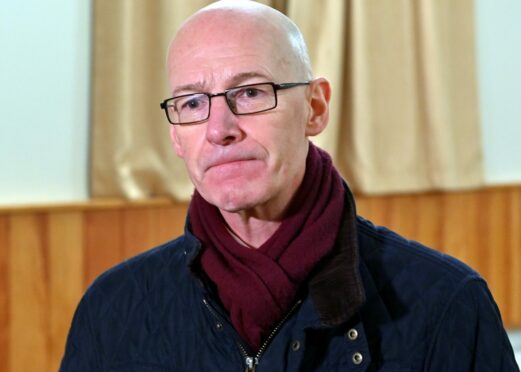A leading expert says she has “genuine concerns” about unvaccinated people ending up in hospital over the winter, as Scotland marks one year of coronavirus jags.
Professor Linda Bauld, chief social policy adviser to the Scottish Government and chair of public health at Edinburgh University, says the NHS will be under “real pressure” this winter, and says she is concerned by government modelling for the months ahead.
This comes as Scotland marks one year since the first non-trial vaccine was administered in Scotland on December 8 2020.
Since then, over 10 million vaccines have been given in Scotland, saving an estimated 27,000 lives.
‘There are genuine concerns’
Ms Bauld says she is encouraging as many people as possible to now take up the offer of a third booster vaccine, adding it will still provide some level of protection against the new Omicron variant.
She said: “Omicron is worrying for many countries around the world – scientists and politicians are genuinely concerned.
“In Scotland there has been a reduction due to a reduction in prevalence of the disease a few weeks ago, and there is a dip of 8% in cases in the over 60s, which shows the booster vaccines are working.
“What we are seeing in Africa is hospital admissions have gone up, mostly amongst young people, but unfortunately it takes time to see the trajectory of the disease.
“It will be a few weeks before we see that here.
“Vaccines are amazing, and even against Omicron they are not useless.
“There is no evidence they won’t protect you, even if it is less it still protects against serious disease.”
She added: “This is the worst time of year for the NHS and it is under real pressure this winter, but I am genuinely concerned looking at the modelling from the Scottish Government about the impact of Omicron.
“People are our times more likely to end up in hospital if they are unvaccinated, so there are genuine concerns.”
This comes after First Minister Nicola Sturgeon branded those who refuse to get a coronavirus vaccine as “selfish”.
Omicron rate of growth ‘alarming’
Covid-19 Recovery Secretary John Swinney added: “The pace at which the Omicron variant accelerates is alarming.
“The first minister estimates the doubling time may be as short as two to three days – in the past it was seven to 14 days, that shows the aggressive pace it is growing at.
“We need to take necessary actions to stop serious illness developing and to stop the pressure on the health service.
“The booster vaccine programme is going extremely well and more people are boosted in Scotland than any other part of the UK, which is a phenomenal achievement in such a short space of time.”
He reiterated the Scottish Government’s plea for people to return to working from home if they can, saying this could help avoid tighter restrictions in the weeks and months ahead.
He added: “In terms of further restrictions there are a range of options, some of which relate to extending the vaccine certification scheme we already have in place.
“It could also involve restrictions people are familiar with that we have used in the past.
“But we want to avoid that if we can do so.
“We have to be candid, we face difficult decisions.”



